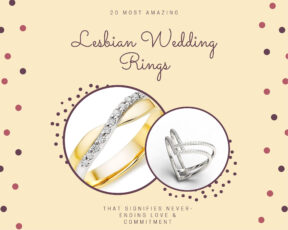Homosexuality and religion have a complex history. Same-Sex marriage was first officially recognised in 2000 by The Netherlands, yet the conflict between the many religious/heteronormative concepts of a husband and wife and the LGBT community’s fight for equal marriage acceptance has been intense, even in countries which have legally sanctified same-sex marriage. We explore from past to present…
In the Annals of History
While same-sex marriage seems like a recent thing, some sources may suggest otherwise. An icon in St. Catherine’s monastery on Mt. Sinai depicts two saints, St. Serge and St. Bacchus, standing side-by-side in the manner of a wedding. Behind them is Christ as the pronobus (best man) sanctifying the marriage. Yes, it’s open to interpretation – and, indeed, a 10th century Greek account of their lives viewed them as “sweet companion and lover” to one another – but whether or not you choose to believe these saints were lovers or not, suggestions of gay marriage certainly exist. (1)
Church vs. State
More recently, particularly in the 20th and 21st centuries, religion has been used as an argument against same-sex marriage. A country’s dominant religion has often had sway over legal decisions, particularly when it comes to gay marriage (and in some the penalty for homosexuality is death), however a conference for the Evangelical Lutheran Church in Denmark, to which 80% of the general public claim to belong, was instrumental in swaying the country to legalise same-sex marriage.
Need help finding the perfect suppliers?
Explore our selection of wedding specialists for the most unique wedding.
Have questions? Ask anything, and our team of experts will be there to help you decide.
Other countries, such as Spain and Belgium, have legalised same-sex marriage under strong opposition from the Roman Catholic Church, the most powerful religious organisation in the world. Other countries, including the United States and the Netherlands, are more religiously diverse, and this can complicate the debate – although in the case of the Netherlands, which was the first country to legalise same-sex marriage, it moved towards acceptance.
Church vs. Church
Of course, religions do not always have a single voice. The 21st century has seen countless religious community rifts over the same-sex marriage debate: within the Anglican communion, for instance, when the American and Scottish churches announced their intention to allow their gay and lesbian members to marry, it was condemned by the Archbishop of Canterbury, Justin Welby. Within Judaism, the Orthodox Church stands against same-sex marriage, whilst the Reform, Reconstructionist and Conservative traditions allow for it. Hinduism, which has no sole leader or hierarchy, left it much up to the individuals of their religion to decide, and Buddhism was more concerned with members’ attaining enlightenment than worrying about their sexuality. (2)
Need help finding the perfect suppliers?
Explore our selection of wedding specialists for the most unique wedding.
Have questions? Ask anything, and our team of experts will be there to help you decide.
An essential point argued by religions against same-sex marriage, was that same-sex marriage could not involve procreation – a foremost reason, in the eyes of many gods, for marriage. But, if the icon at St. Catherine’s monastery is to be believed, the idea of marriage for love has existed for centuries.
Credits:
(1) Gaychristian101.com. (2018). Gay marriage is as old as history, rooted in the mists of antiquity. Available at: https://www.gaychristian101.com/Gay-Marriage.html (Accessed 27 Sep. 2018).
(2) Encyclopedia Britannica. (2018). same-sex marriage History, Status Around the World, & Facts. Available at: https://www.britannica.com/topic/same-sex-marriage (Accessed 27 Sep. 2018).
Image via Christianity Revealed








